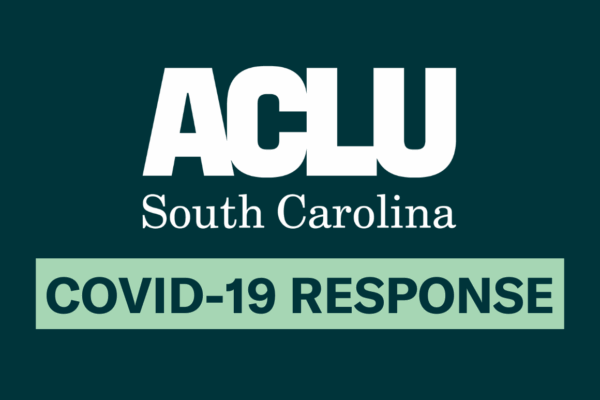COVID-19 And Your Rights
As we face the COVID-19 crisis together in South Carolina and across the United States, it is essential that all government officials follow public health experts' recommendations to help ensure a response plan that protects the health, safety, and civil liberties of all. Any response to this pandemic should be grounded in science and public health, not politics or xenophobia.
The ACLU of South Carolina is watching closely to make sure that the government's response is scientifically justified and no more intrusive on civil liberties than absolutely necessary. In this and all times of crisis, it is critical that "We The People" truly means all of us.
On May 20, we released "We The People" Means All of Us: A Blueprint for COVID-19 Relief in South Carolina. This blueprint outlines our recommendations for COVID-19 relief that addresses the needs of those at greatest risk for disproportionate negative impact.
Our recommendations center on three primary goals:
- Protect Incarcerated People
- Ensure Access to the Vote
- Minimize Disproportionate Negative Impacts for Historically and Structurally Oppressed Communities
The list below outlines some of the more specific ways we are addressing these goals.
Related Content

ACLU of South Carolina Demands Prison Reduction Plan in Response to COVID-19

Probation and Parole Officers Should Do Their Part to Prevent the Spread of COVID-19 in South Carolina

SC Corrections Officials Must Respond to COVID-19 With Transparency

